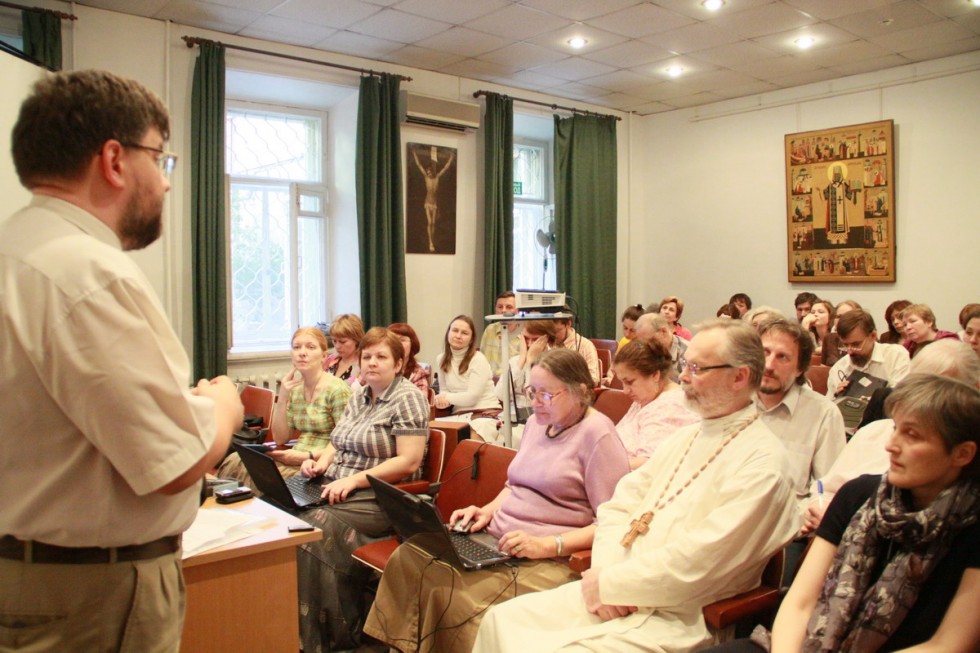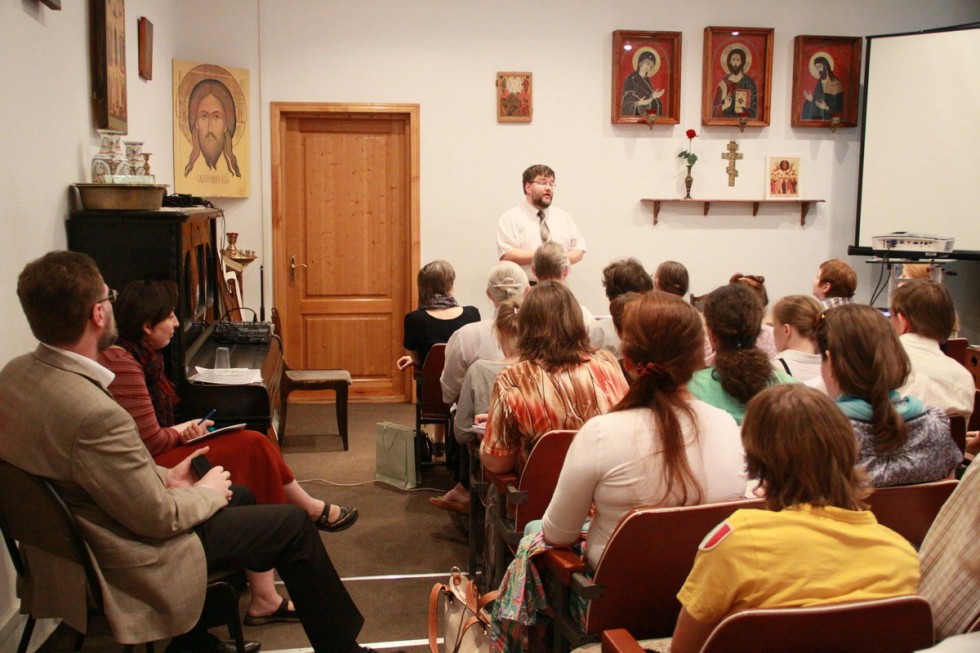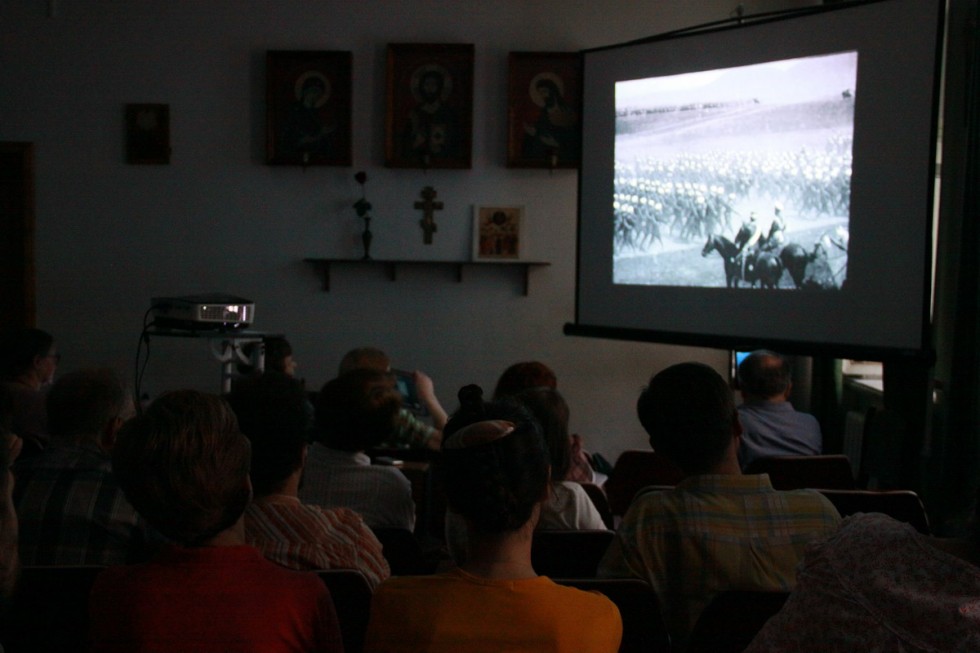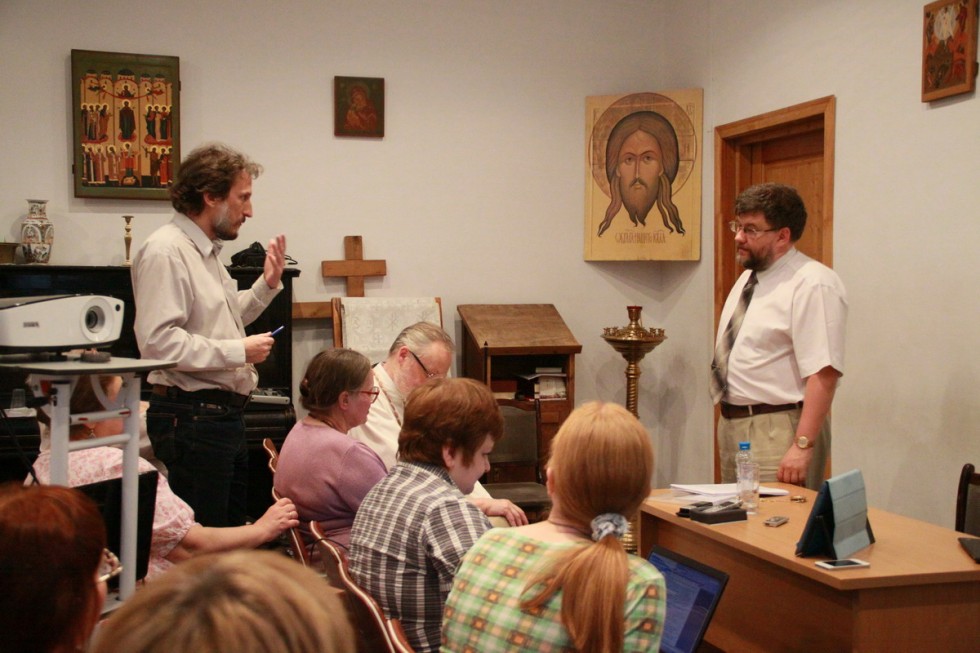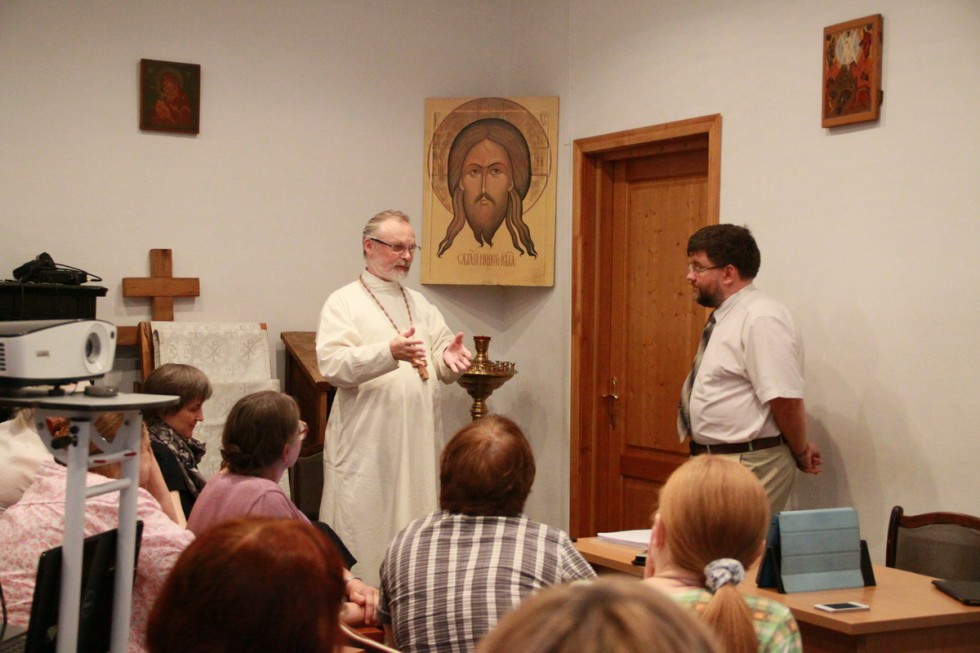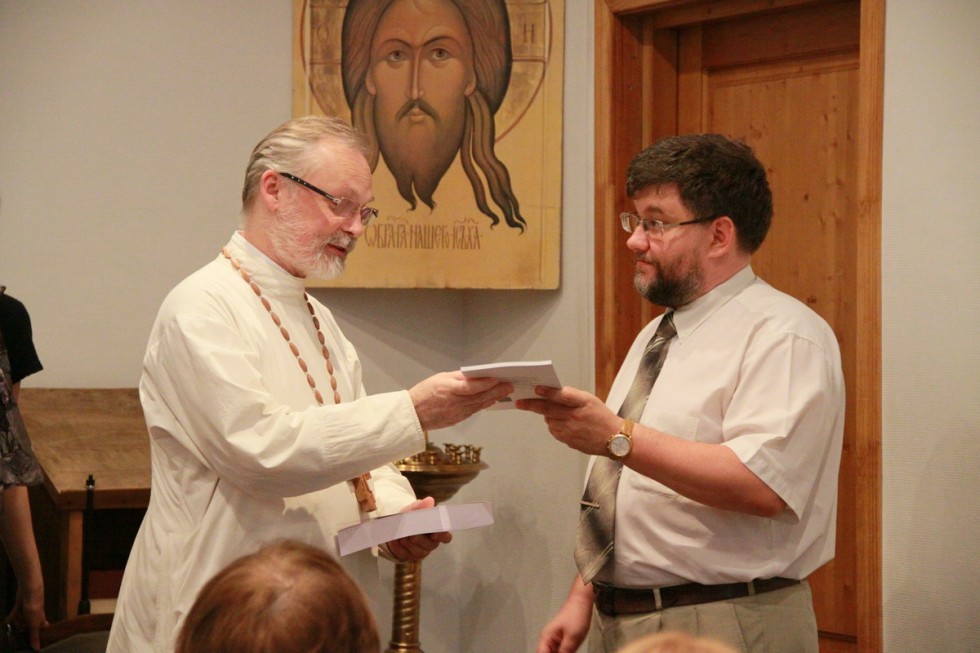The Great and The Forgotten
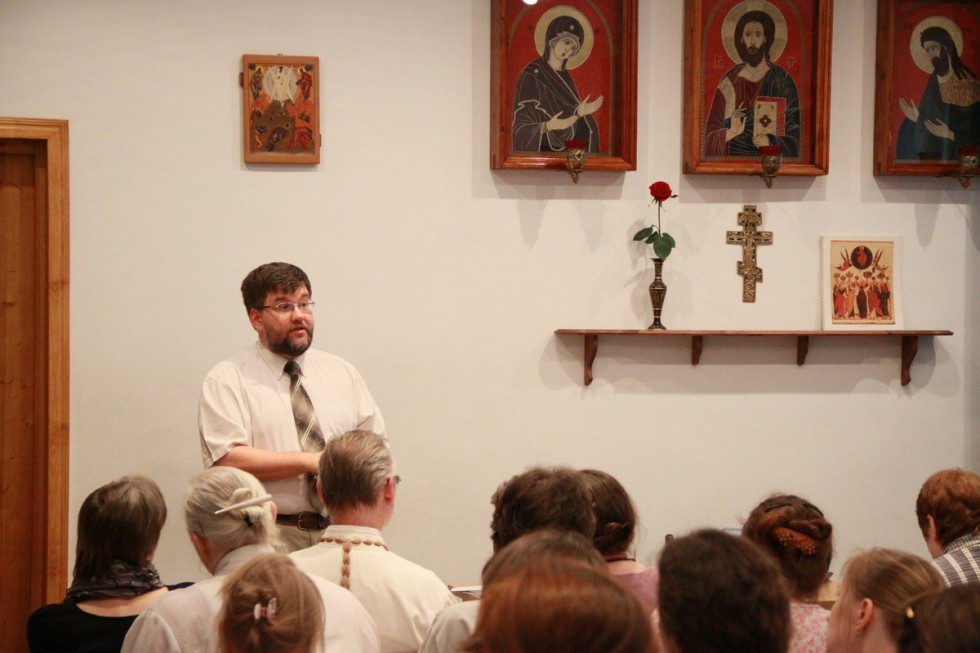
On 31 May, historian Kirill Alexandrov delivered a public lecture on the First World War at Saint Philaret’s Institute.
The second half of the 19th century saw Europe sliding towards the Great War. The First World War claimed the lives of more than ten million soldiers and officers and even more civilians, leaving millions of people disabled. The First World War redrew the map of the world and changed the destinies of Europe and Russia. Such was the background to Lenin, Stalin and Hitler’s entrance onto the world stage.
The lecturer highlighted the causes of the war, the goals pursued by the countries involved, the major campaigns, Russia’s military efforts, the emperor’s fatal mistakes, the Russian army’s strengths and weaknesses and its forgotten heroes: the best commanders and military leaders including General Commander Platon Lechitsky, General Mikhail Alekseyev and the Russian flying ace Alexander Kazakov, statesman Alexander Krivoshein and many others.
During his lecture Kirill Alexandrov also showed an episode of his documentary ‘The Great and The Forgotten’. Other famous historians had also contributed to this joint First World War history project.
‘The Great War is the war that modern Russia should consider lovingly’, said Kirill Alexandrov. ‘The image of that war has grown dim in the minds of our people. It has long faded and disappeared from our memory’. In his view, this was due to the Soviet historiography maintaining silence about the First World War or interpreting it ideologically.
The historian is convinced that although the First World War was a great crime against God and humanity and a manifestation of human sinfulness, it was also a revelation of beauty, self-sacrifice and other best human qualities. When answering the question about the difference in the attitude to the value of human life during the two World Wars, Kirill Alexandrov pointed out that the number of people killed in the First World War was estimated within the range of 1.85 to 2.2 million, while the Second World War figures varied widely (from 8 to 17 million) depending on the source of the statistic. We know that during the First World War newspapers published both the names and photos of those killed.
SFI Rector Priest Georgy Kochetkov noted that a systematic approach to the First World War history is particularly valuable today. ‘This is one of the blank pages in our history that needs to be populated as quickly as possible. We have been served too many Soviet myths. While this is true in relation to the Second World War, it is even more so in respect of the First World War,’ he added.
Father Georgy asked whether Russia could have avoided involvement in the war, where its interests were least affected, and if not, whether there was any possibility that Russia could have made arrangements with Germany and Austria, civilisationally similar to it, and prevented many of the First World War consequences.
Answering the question, Kirill Alexandrov noted that statesman Pyotr Durnovo had proposed similar reasoning in 1914. He urged Nicholas II to avoid getting involved in the war with Germany and predicted the revolution, the fall of the empire and many other consequences of Russia’s defeat. ‘I used to share this view but now I am inclined to think that Russia's involvement in the war with Germany was inevitable,’ said Kirill Alexandrov. He added that, unlike the tensions between Russia and Germany, the Russia-Austria antagonism could not have been resolved on the eve of the war.
Kirill Alexandrov is a leading expert in the history of the anti-Bolshevik movement in the first half of the 20th century, one of the directors of the Historical Cultural Centre ‘Beloye Delo’ (‘White Cause’), member of the Encyclopaedic Department at the Institute of Philology (St. Petersburg State University) and a co-author of ‘The History of Russia’ edited by Andrei Zubov.
Translated by Alina Patrakova; edited by Ekaterina Zvyagintseva
